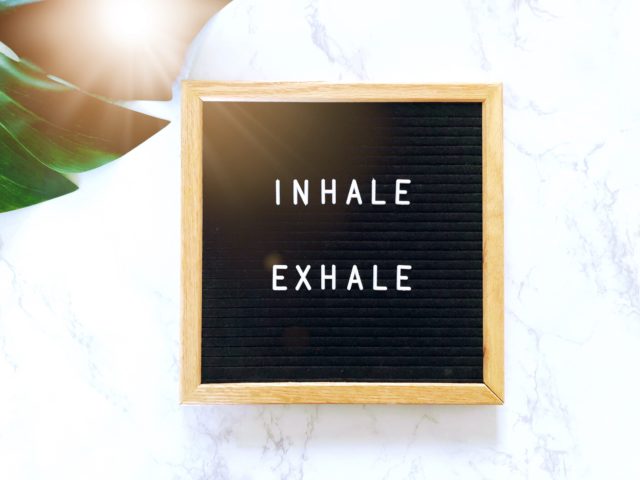Stress, both emotional and physical, is a natural part of life. Since the beginning of time, humans have dealt with stressors in their environment, managing them with a well-adapted nervous system that kept them safe and alive. Discover 7 simple tips to lower your cortisol manage stress naturally in this article…
Today, stress looks a little different. Unlike the stressors that your ancestors faced (predators, food scarcity, and so on), today, we deal with issues like financial strain, illness, work overload, and so on. While modern sources of stress may sound much like dramatic, they are much more pervasive. Unlike a predator, which will eventually move on, financial stress can stay with you for years.
Modern stress has become so insidious that many people’s nervous systems are on edge, creating an endless cascade of stress hormones. High levels of these stress hormones can cause significant imbalances in your body and mind and lead to a lower quality of life.
In this article, we’ll explore:
- What stress hormones are
- How your stress response works
- What happens when you’re body is overloaded with stress hormones
- Natural and effective strategies for lowering your stress hormones
Cortisol and Your Fight or Flight Response
Cortisol, also known as the “stress hormone,” regulates your fight or flight response. The fight or flight response is your body’s way of responding to a threat and is signaled by the activation of your sympathetic nervous system.
While in the past, it would take a serious threat to your livelihood for your sympathetic nervous system to become activated, today, what your mind and body signals as “threats” are much less serious – and also much more frequent.
For instance, let’s say you’re sitting in a traffic jam, and you’re already late for an important work meeting. Although there is no serious threat happening in your environment, your sympathetic nervous system may get a poke due to the emotionally stressful thoughts going on in your head; “I can’t believe I’m going to be late for this meeting, my boss is going to think I don’t care, or worse, that I’m totally incompetent.” “it’s going to be so embarrassing to walk into the meeting late; everyone is going to be staring at me,” “why is this traffic so heavy?! It’s never like this during this hour. Did someone get into an accident? How stupid to get into an accident while people are trying to get to work!”
As a result of these stressful thoughts, together with other hormones, cortisol increases your heart rate and respiration, dilates your blood vessels, and shuttles energy away from your internal organs to your extremities so you can fight or flee from this dangerous situation[1].
Unfortunately, getting that riled up in traffic will only make you feel worse, not better. And it certainly won’t help you get to work faster. But this is this flaw of the nervous system – it hasn’t caught up with modern-day stressors, so it treats any stress as a threat to life.
Today many people live in a state of chronic low-level stress. It’s so pervasive that many people don’t even realize that they’re stressed; it’s become their base-level existence.
And to make matters worse, research shows that environmental toxins like pesticides, heavy metals, and EMF can further push your stress response out of whack, compounding the real-life stressors you may deal with[2].
All of this results in chronically high levels of stress hormones, which in turn may create systemic health issues like[3]:
- Widespread inflammation
- Pain
- Weight gain
- High blood pressure
- Osteoporosis
- Muscle weakness
- Increased thirst
- Low sex drive
- Infertility
- Irritability
7 Ways To Lower Cortisol and Stress Hormones Naturally
#1 Reduce Your Toxic Load

This may sound a little out of left field, but research shows that the toxins in the environment directly impact your nervous system. From what the research shows, it appears that your limbic system and HPA axis (both involved in your stress response), may be direct targets for toxins like heavy metals and pesticides[2].
Unfortunately, our environment is riddled with these compounds, especially our water and our food supply.
While it’s nearly impossible to avoid heavy metals and pesticides altogether, there are some measures you can put in place to reduce your toxic exposure; these include:
- Buy all organic produce (not sprayed with harmful pesticides like glyphosate)
- Drink only filtered water
- Be sure to consume high-quality animal products (organic, free-range, grass-fed) whenever possible
- Avoid fish that tend to have high levels of mercury like tuna, swordfish, and shark
- Switch out your personal care products for all-natural brands that are made with safe ingredients.
Taking the above measures is an excellent way to manage your toxic inputs. However, if you want to assist your body in staying healthy and keeping toxins moving out of your body, then incorporating a supplement like Daily Detox will provide your cells with the nutrients they need for optimal detoxification support and gentle, natural elimination.*
As mentioned, these chemicals are everywhere in our environment today, so avoiding them is impossible, but limiting them and assisting in their removal will increase your quality of life manifold.
#2 Regulate Your Vagus Nerve

Your vagus nerve is a nerve that travels from your brain all the way down to your gut and is responsible for your parasympathetic nervous system response.
While your sympathetic nervous system turns on your “fight or flight” response, your parasympathetic nervous system is responsible for your “rest and digest” response. Basically, unless you’re in immediate danger, you want to be in parasympathetic mode.
The amazing thing about the mind-body connection is that, in essence, you can trick your body into thinking you’re relaxed by bringing balance to your vagus nerve. How do you do it?
One of the most effective ways of toning your vagus nerve is through deep diaphragmatic breathing. Below is a simple exercise that you can use anywhere, at any time:
Step 1: Inhale deeply into your belly for a count of five
Step 2: Hold your breath at the top for three seconds
Step 3: Exhale your breath slowly for a count of eight
Step 4: Repeat steps one through three
When you’re feeling stressed or overwhelmed, like in the traffic example above, use this breathing technique to calm your nervous system down and bring yourself into parasympathetic dominance. When your brain notices you breathing slowly and deeply, it will get the message “we’re safe, we’re relaxed,” and the rest of your body will follow suit[4].
#3 Adaptogenic Herbs

Another excellent way to manage stress is utilizing the power of adaptogenic herbs.
Adaptogens are herbs that work in your body by helping you adapt to stress in a way that is specific to you. Truly, these plants are magical. Whether you need to lower your cortisol or if your cortisol is depleted from too much stress, adaptogens will help get your nervous system back online by nourishing your body exactly the way it needs.
One of the most popular adaptogens is ashwagandha. With a history of use that dates back to ancient India, ashwagandha has become increasingly popular in the last several years as a supplement to help people manage stress. Stemming from the ancient medicine of Ayurveda, this herb is a nervous system tonic and has been used for over five thousand years to treat ailments of the nervous system.
Research shows that ashwagandha can significantly reduce cortisol levels, increase resilience to stress, and improve the overall quality of life[5].
#4 Mitigate The Effects of EMF
Along with physical environmental toxins like heavy metals and pesticides, energetic and electrical toxins exist right in our airways – electromagnetic frequencies (EMF).
As technology keeps advancing, the amount of these frequencies in our environment is skyrocketing right along with it. Everywhere there is WiFi, Smart devices, cell service, and so on, there is EMF. And to make matters worse, the rollout of 5G is not only increasing the intensity of these signals but also the number of towers that release EMF into the environment. At this point, we’re basically living in a microwave.
Could this be why we’re so stressed out these days? Research shows that EMF may directly impact something called Heart Rate Variability (HRV). HRV is a measure of how well your body responds to stress and how resilient you are in the face of stressful or unwanted situations. When your heart rate variability is high, it indicates that you are strong and have a high-stress tolerance, with low HRV indicating low tolerance[6].
So how do you avoid EMF if it’s literally everywhere? You can’t.
What you can do, however, is mitigate the impact that EMF has on your body and your own energy field. And if you’re not aware – yes, your body has its very own energy field[7].
While there are many devices that will help mitigate the effects of EMF, the one I rely on the most (never leave home without it) is the Harmoni Pendant.
The Harmoni Pendant is a necklace that’s been tested for its ability to improve heart rate variability and mitigate the effects of EMF in your energy field. What makes this “device” so fantastic is that because you wear it, it goes with you wherever you go. That means if you’re at the mall, an airport, or any other high-EMF area, the Harmoni Pendant is working for you.*
#5 Meditate

Meditation is another stress-reduction tool that is becoming increasingly popular. When it comes to stress, in particular, mindfulness meditation is gaining a lot of traction as a way to deal with life’s ups and downs without being dragged along for the ride.
According to Jon Kabat-Zinn, founder of mindfulness-based stress reduction (MBSR), you can define mindfulness as: “Paying attention in a particular way: on purpose, in the present moment, and without judgment.”
Mindfulness practices, like mindful breathing, allow you to look at your mental chatter more objectively, separating you from the story in your mind. For most people, the “stress” that occurs day after day isn’t actually something that’s happening in the environment, but rather the stories they tell about what could happen in the future. Focusing on future worries and anxieties will never bring you peace in this moment, and they won’t do much in terms of helping you avoid unwanted experiences in the future. Instead, they only serve to bring you down and create a never-ending loop of stress, worry, and future forecasting.
And the real cosmic joke is that most of the time, these worries never even come to fruition. If you were to survey how many hours of your life you spent worrying about things that never materialized, it would be staggering.
Research shows that practicing mindfulness-based stress reduction techniques, such as mindful breathing, can lower cortisol levels and reduce feelings of stress[8].
Here is an example of a simple mindfulness meditation:
Step 1: Set an alarm on your phone for 10 minutes
Step 2: Close your eyes and begin to pay attention to the natural inflow and outflow of your breath
Step 3: Continue to notice your breath, staying as close as possible to each inhale and exhale, not controlling the breath, just noticing
Step 4: If (when) your attention starts to drift, gently return it back to your breath, without judgment.
Practicing this simple meditation trains your brain to come back to the present moment and teaches you to be aware of the simple things that are happening in your environment (like your breath). Over time, it becomes easier and easier to return your attention to your breath and let go of unwanted thoughts that creep in. The key here is to stay as non-judgmental as possible as your thoughts do pop in – that’s just the nature of your mind.
#6 Spend Time In Nature

If you spend most of your time inside, as many of us do, making a point to get out in nature is a wonderful way to ease stress.
Research shows that spending at least 20 to 30 minutes in a natural setting can reduce cortisol levels significantly[9].
Natural settings include anywhere that you’re away from artificial lighting and surrounded by the natural environment. This could be a walk along the beach, sitting in the forest, spending time in your garden, or going for a hike in the hills. Whatever nature escape is most convenient for you will work.
Although it may take some planning to take the time to get out in nature, this is one tip that can really shift your state of mind. If you live in a city and can’t make it out to a natural environment, then the next best thing is to just get outside and breathe in the fresh air.
#7 Exercise
![]()
From an ancestral perspective, it makes a lot of sense that people feel significant stress relief after a workout. The fight or flight response is meant to help you fight or flee – AKA it energizes you to move.
Even if you’re just sitting in traffic, your body is saying, “Run!! Fight!! Get out of this situation!!”
Sure, running down the freeway isn’t really going to do much for you in terms of getting to work on time, but your body doesn’t know that.
However, when you exercise, it takes all of that pent-up energy that the fight or flight response is giving you and channels it into a release.
Research shows that even low-intensity exercise like walking or yoga can help to lower cortisol levels[10].
Takeaway
As many people are becoming more health-conscious by watching what they eat and exercising more, it’s crucial that we keep in mind the impact that stress can have on overall health.
Today, stress looks different than it did for our ancestors. Although our “threats” may be less dangerous physically, they can certainly take their toll mentally.
The key to managing stress and reducing stress hormones is to find tools that work for you. Give the above suggestions a try, and see which ones fit and which don’t. When you find something that really helps shift you out of your stress response, you’ll know you’ve hit on gold.
*These statements have not been reviewed by the FDA. These products are not intended to diagnose, treat, cure, reverse, or prevent any disease. They are not intended to replace any other treatments, medication, or healing modalities that may be prescribed by your medical doctor.











